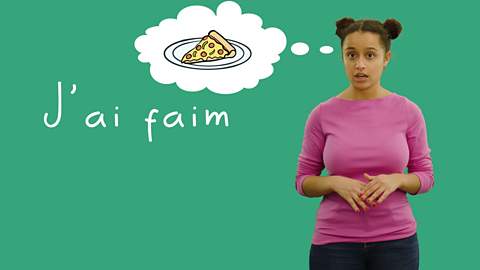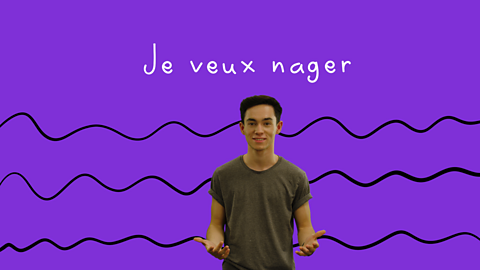How to use the verb ‘to be’ in French
Verbs in French change a lot more than they do in English. And it’s the verbs that you use the most that change the most. Être - to be, is the most useful verb of all. And with it you can say I am you are and he or she is.
Je suis sportive … I am sporty.
Tu es intelligent… You are intelligent.
est means is.
Il est - he is… elle est - she is.
Elle est joueuse de foot - She’s a football player.
And you can use it with people’s names:
Nina est joueuse du foot - Nina is a football player.
Vous êtes à l'école… All of you are at school…
Vous has two meanings. It means several of you, and it is the formal and more polite way to say _you_.
Vous êtes très gentil(le) - You are very kind.
So there you are être - to be!
je suis - I am
tu es - you are
il est - he is
elle est - she is
vous êtes - you are
Être (to be) – a very useful verb
Être (to be) is a very important verb, and it is used in many different situations, including describing people and things, giving opinions, saying where you are, and to form other tenses, such as the passé composé (the perfect tense).
- Je suis grand - I am tall.
- Tu es anglais? - Are you English?
- C’est génial! - It’s great!
- Je suis allé(e) au parc - I went to the park.
How to form être (to be) in the present tense
Être is an irregular verb, which means that it doesn’t follow the same pattern as regular verbs in the present tense.
This is how to conjugate the I, you (singular, informal) and he/she/it forms of être in the present tense:
| English | French | Example |
|---|---|---|
| I am | je suis | Je suis écossais(e) - I am Scottish. |
| you (singular, informal) are | tu es | Tu es très grand(e) - You are very tall. |
| he / she / one is | il / elle / on est | Elle est à la banque - She is at the bank. |
| it is | c’est | C’est incroyable! - It’s incredible! |
How to form être (to be) in the past
To give an opinion, describe someone or say where you were in the past, you can use the imperfect tense of être.
This is how to conjugate the I, you and he/she/it forms of être in the imperfect tense:
| English | French | Example |
|---|---|---|
| I was | j’étais | J’étais au supermarché - I was at the supermarket. |
| you were | tu étais | Tu étais avec moi - You were with me. |
| he / she was | il / elle était | Il était malade - He was ill. |
| it was … | c’était … | C’était ennuyeux - It was boring. |
How to use être (to be) in the future
To give an opinion, describe someone or say where you are going to be in the future, you use the correct form of aller (to go) plus the infinitive être (to be). This tense is called the immediate future and is translated as 'I am going to be', 'you are going to be', 'he/she/it is going to be'.
You form it as follows:
| English | French | Example |
|---|---|---|
| I am going to be | je vais être | Je vais être en retard! - I’m going to be late! |
| you are going to be | tu vas être | Tu vas être au centre sportif demain? - Are you going to be at the sports centre tomorrow? |
| he / she is going to be | il / elle va être | Elle va être professeur - She is going to be a teacher. |
| it is going to be | ça va être | Ça va être génial! - It’s going to be great! |
Quiz
Find out how much you know about the verb 'to be' in French in this short quiz.
GCSE exam dates 2025
Find out everything you need to know about the 2025 GCSE exams including dates, timetables and changes to exams to get your revision in shape.

More on Grammar
Find out more by working through a topic
- count4 of 7

- count7 of 7
